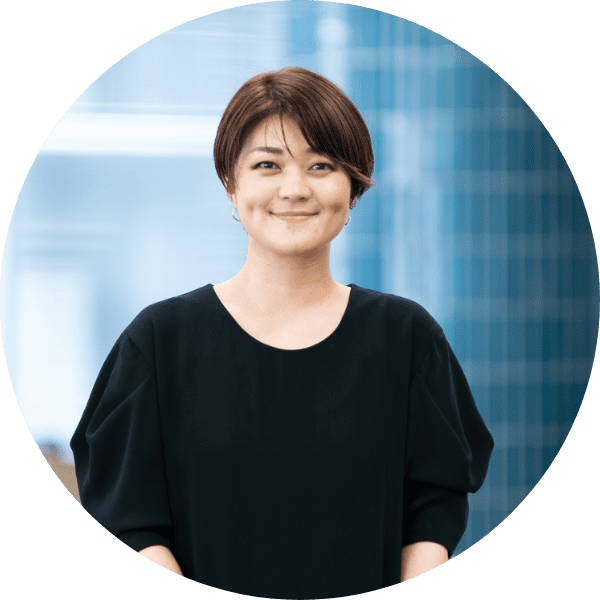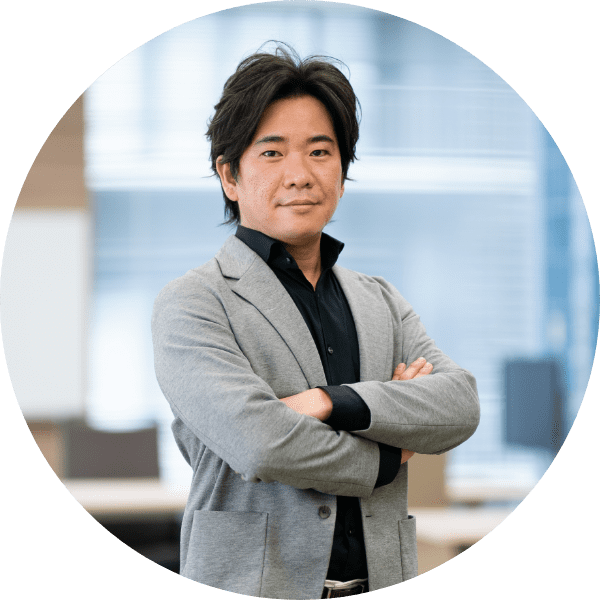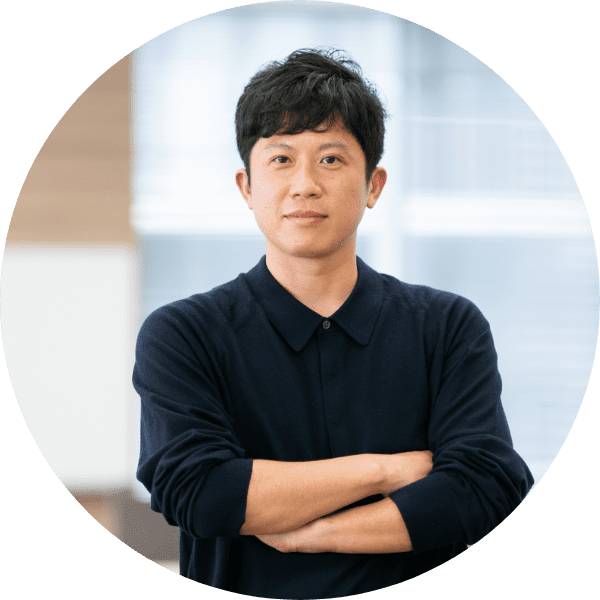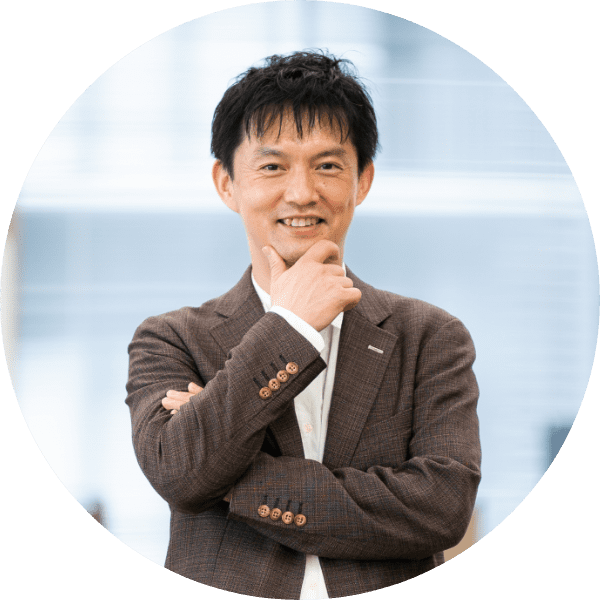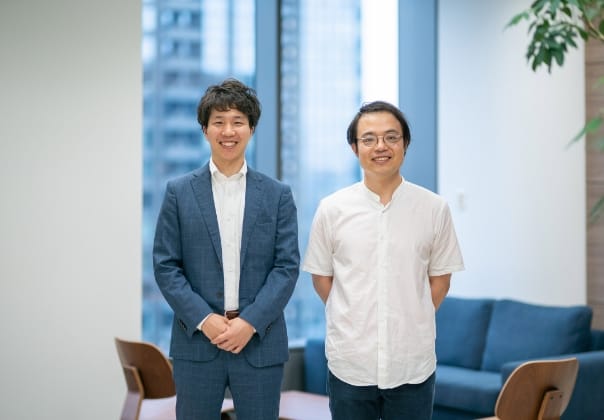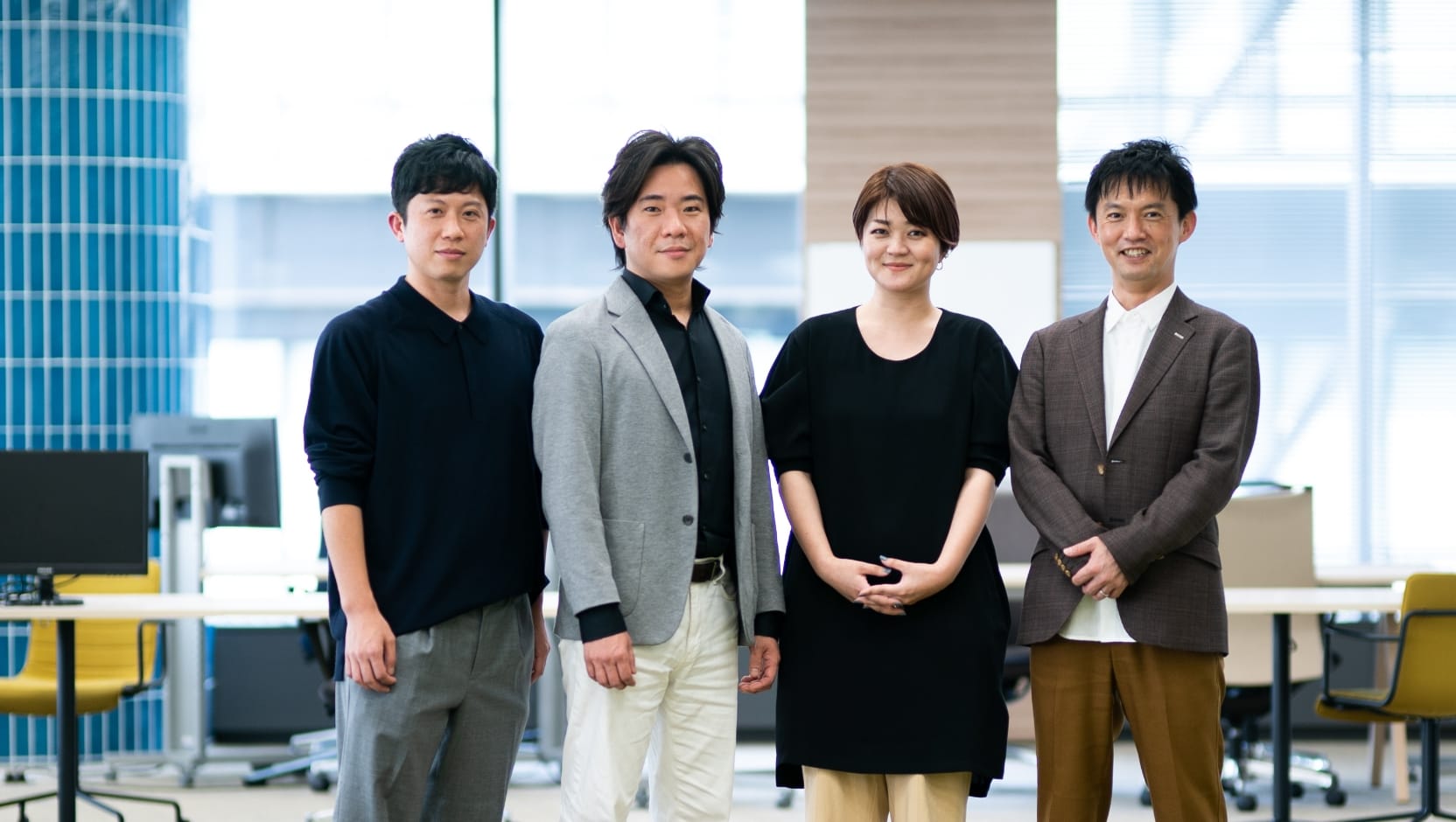
Leading the Way The FUTURE GROUP’s “Two-Way Strategy”
Self-Transformation
The FUTURE GROUPS’s Two-Way Strategy
The FUTURE GROUP became a holding company in 2016. Alongside its core “IT Consulting & Services” business, the FUTURE GROUP has developed a new business unit called “Business Innovation”. The Business Innovation unit accumulates the capability of the FUTURE GROUP and runs entrepreneurial IT service business in various fields such as marketing, sports, education, and e-commerce. In this article, four CEOs in the Business Innovation unit discuss the value of the “Two-Way Strategy”, and the synergy between FUTURE GROUP’s IT Consulting business and Business Innovation.
Business Leaders Joining the Discussion
Moderator: Shuhei Sugie (FUTURE AGENDA Planning and Editorial Team)
Table of Contents:
Practice Consultancy Skills in Real Business
Editorial Team: So, all four of you had been IT consultants at FUTURE ARCHITECT and had become business leaders of FUTURE GROUPS’s operating companies. What made you decide to become involved in real business as managers?
I had an urge of trying out my ideas in real business
Sugano:
I joined FUTURE ARCHIETECT fresh out of university back in 2000. I was involved in system development
for many different clients, mainly for the distribution and retail industries. As I gained knowledge
and experience as an IT consultant, I had an urge of trying out my ideas in real business. So, I took
the opportunity to join the board member of Tokyo Calendar, one of the FUTURE GROUP’s operating
companies.
At the time I joined Tokyo Calendar, the company had strong brand power centered around the magazine
publication, “Tokyo Calendar”. However, the magazine industry was left behind in digitalization, so I
wanted to revolutionize the industry using IT..
Editorial Team: I see. What about you, Ms. Kohno, Mr. Horiuchi, and Mr. Murasawa, what were the triggers for you?
Kohno:
I had been working with a client to implement e-commerce since I started working for FUTURE
ARCHIETECT. I was the project manager. After the successful completion of the core system renewal, we
moved on to the next stage, to examine growth strategies for the business. Together with the client,
we worked on measures to increase average spending of royal customers. We would quickly come up with
an application and test it in the market. For a person who had been working on core system projects
like myself, it was new and rewarding to quickly implement a new idea and get customer feedback.
Around the same time, I was asked if I wanted to become the President of eSPORTS (now YOCABITO). B to
C was a new area for me and I was willing to take the challenge thinking that I can leverage my
experience in e-commerce.
Horiuchi: I joined FUTURE ARCHIETECT straight after graduating from university and worked as an IT consultant for seven, eight years, mainly for big logistics companies. However, at one point, I began to think that I wanted to try my own business, so I launched an IT education business for companies as an in-house venture project. And around the same time, CodeCamp became part of the FUTURE GROUP. The business domain overlapped with my project, so I joined CodeCamp. And in 2019, I became the President.
Editorial Team: Mr. Murasawa, you had been doing sports business within FUTURE ARCHITECT and later transferred the business to LaiBlitz and became the manager. What is the difference between consulting and operating your own business?
Murasawa: With a consulting project, the work starts after the client makes a request. However, as an operating company, I can make decisions for an up-front investment and move the project forward. This is the biggest difference. Another advantage of an operating company is that we can develop unique services using technologies that we find interesting and bring them to our clients.
Editorial Team: I understand that each of you were able to take the challenge because the Business Innovation unit served as an incubator.
I had an urge of trying out my ideas in real business
Developing New Markets with Technology
Editorial Team: What are your thoughts about FUTURE GROUP’s “Two-Way Strategy”?
Sugano:
When I was looking for a job, FUTURE ARCHITECT was still a private company. But from the time I
joined, I had the passion of making it into the number one global IT company with my colleagues. I
still hold the same passion from those days. I dream of the FUTURE GROUP to become the leading company
in applying technology to realize anything and everything from A to Z.
Considering the quick changes in the industry, I think the value of system configuration and
technology management is relatively decreasing. In the past, programming was a unique valuable skill,
but nowadays, anyone can make simple applications and edit clips on a smartphone. So, we need to be
able to provide ideas for the whole business to create added- value to our clients. The mission of the
Business Innovation unit is to become a pioneer in this field, to become a one-stop shop creating the
whole business for our clients using the latest technology.
It is our role and responsibility to take the challenge and create new markets
Murasawa:
I agree that the business environment has changed. We need to shift our gears to a higher level, so
our clients can create new business using technology. In the consulting industry, the market needs are
changing. We need to deliver not only the system that would realize the clients’ strategies, but also
provide the actual step-by-step effective usage of the system to deliver results.
In consulting, the decisions are made by the clients, and this limits the scope of the business to
create new markets. I believe as a member of the Business Innovation unit; it is our role and
responsibility to take the challenge and create new markets.
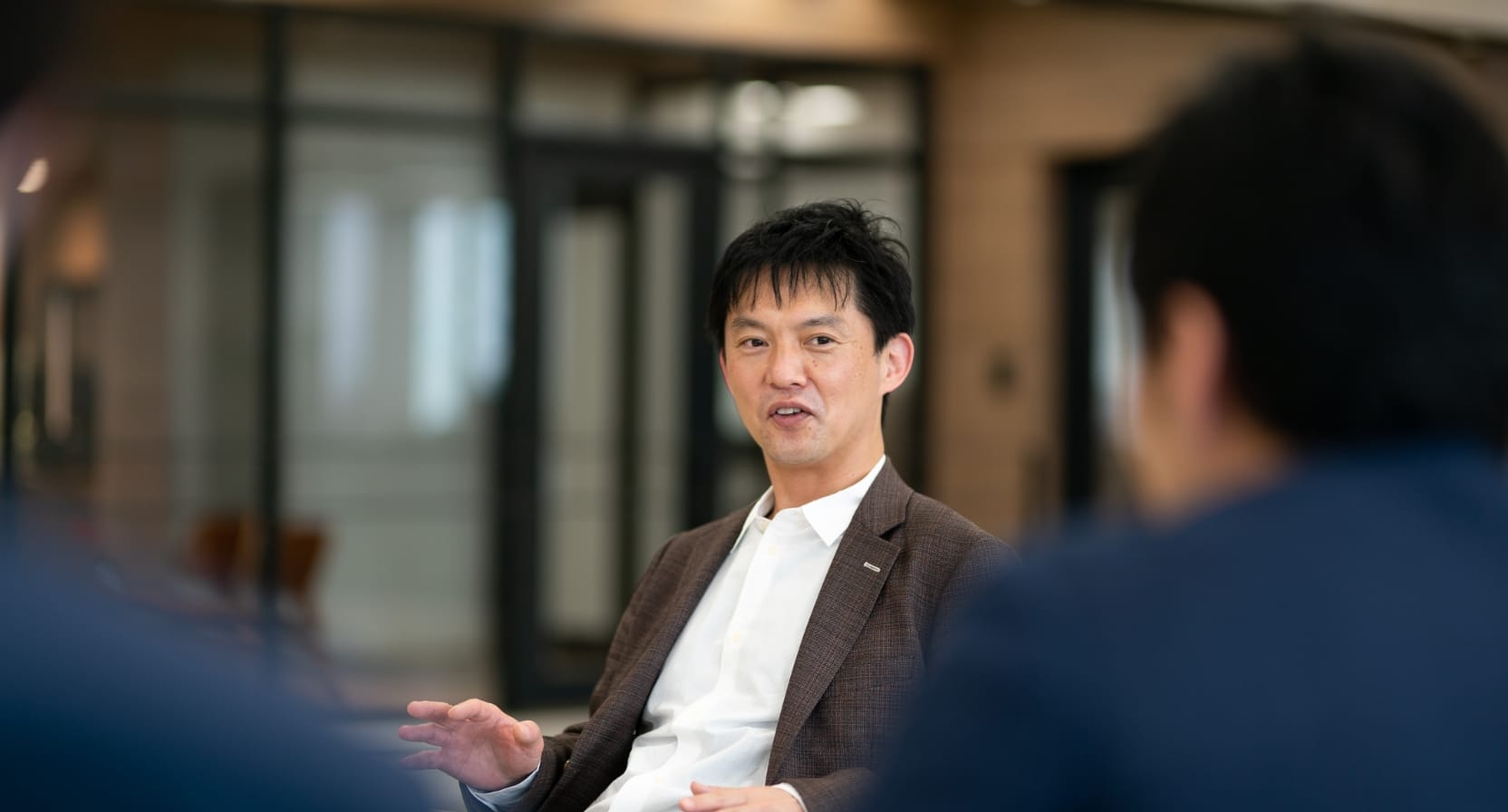
It is our role and responsibility to take the challenge and create new markets
Create synergy among the GROUP’s strength
Editorial Team: I understand that one of the roles of the Business Innovation unit is to cultivate new markets. What do you think is the benefit of managing the business within the FUTURE GROUP instead of spinning them off as independent venture companies?
Murasawa: I think the synergy in business is one big advantage. There had been many cases where FUTURE ARCHITECT would give us leads to clients who are interested in sports business, and many of them became our clients. On top of that, we share technical knowledge and know-how within the group, assuming that the advantage goes for both companies.
Horiuchi: At CodeCamp, we developed the programming education curriculum in collaboration with FUTURE ARCHITECT’s dedicated cutting-edge technology team. This is a good synergy example, made possible by sharing technical know-how within the group. The curriculum is based on ideas and thoughts developed at FUTURE ARCHITECT’s large-scale system development sites, so we were able to develop a more practical curriculum. For example, we are able to provide coding skills necessary to develop a high-quality system. This is a great way to differentiate ourselves from our competitors’ curriculum.
The culture of “Technology First” has prevailed throughout the entire GROUP
Sugano: We call it “Technology First”. The culture of managing the company by prioritizing and cherishing technology has prevailed throughout the entire GROUP. Our consultants at the frontline of building large-scale platforms hold high standard professionalism. Members stimulate each other and become experts with deep understanding of technology. I think one of our strengths is that no one has aversion to any type of technology.
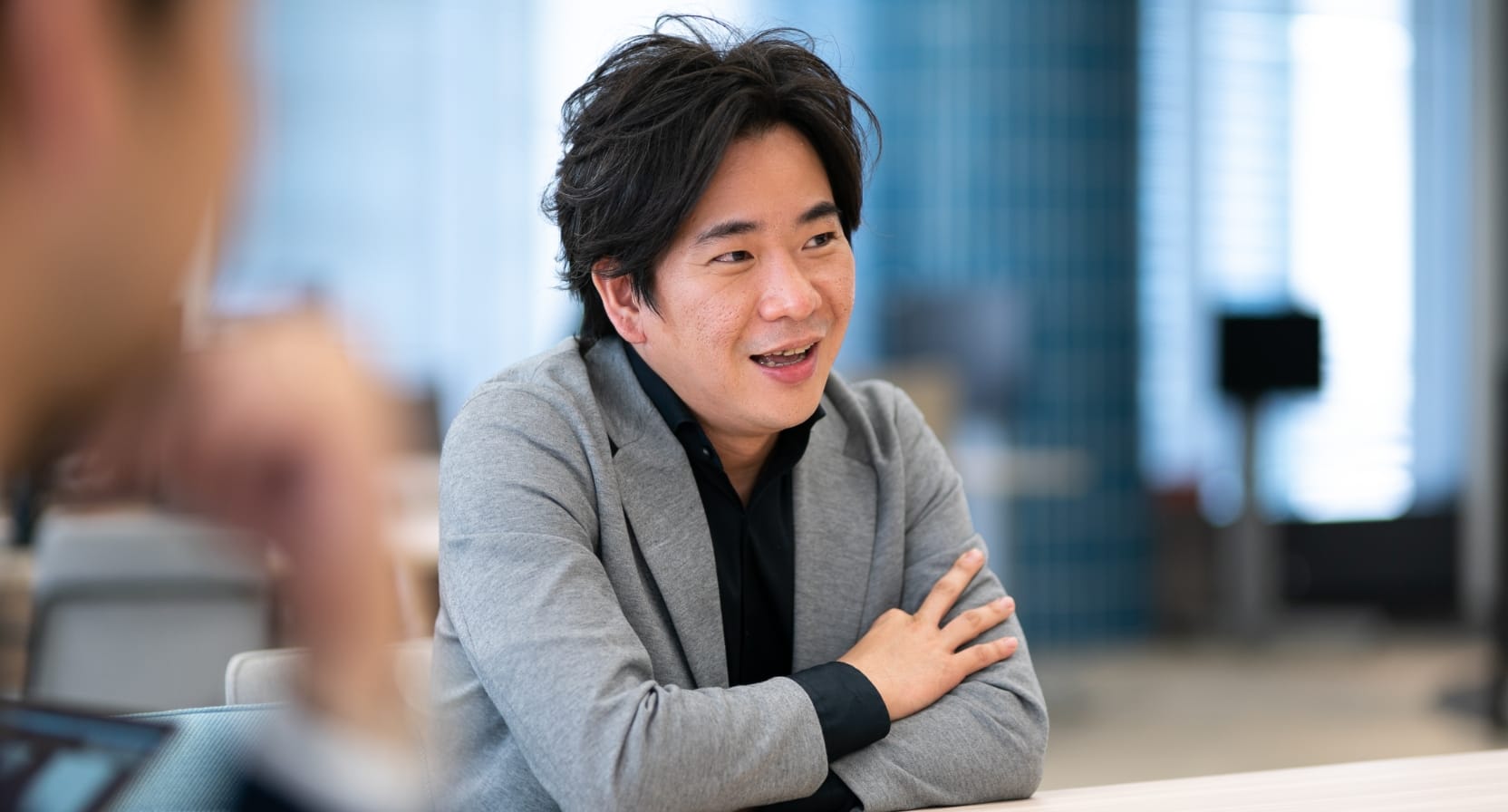
Editorial Team: By being part of the GROUP, do you think there is an advantage when you take risks in investment and in decision making?
Murasawa: I would say the advantage is more on the human resource side. When we need good staff to take a new challenge, FUTURE ARCHITECT does not hesitate to give us their best people so we can proceed the project without delay.
Kohno: I agree with you. People are very helpful when we want to collaborate with other companies from the GROUP. I think this is partly due to the fact that many of them working for the GROUP companies come from FUTURE ARCHITECT. They had all been IT consultants at one point and have a mindset of wanting to help others. They are very empathetic, even to the smallest inquiries. I have been saved by them many times.
Editorial Team: Do you also pay back and contribute to the FUTURE GROUP companies?
Sugano: I think one of our contributions to the GROUP is to be engaged in real business. The main business of the FUTURE GROUP is IT consultation, and some potential customers can be skeptical. “Consultants always give the right arguments, but real business is not that easy”, they say. However, we can say with confidence that “We can build you a system and also help grow your business. We are engaged in real business and have accumulated good practice that we can share with you”.
Murasawa: I think the real business practices we have in the Business Innovation unit showcase our technology by actually showing results. It is not that difficult to try new technology in sports, and the outcomes are clear. Good results get high attention, so the business of LaiBlitz is a good way to appeal the unique technology of the FUTURE GROUP.
The culture of “Technology First” has prevailed throughout the entire GROUP
Driving Force for Non-Linear Growth
The “Two-Way Strategy” can bring non-linear growth opportunities for the FUTURE GROUP.
Editorial Team: To further sophisticate the “Two-Way Strategy”, what would you like to do, here and beyond?
Horiuchi: I believe that the “Two-Way Strategy” can bring non-linear growth opportunities for the FUTURE GROUP. In response to the world’s DX trend, I think that our core IT consulting business will continue to grow, but I would like to seek for a non-linear growth opportunity in the field of education.
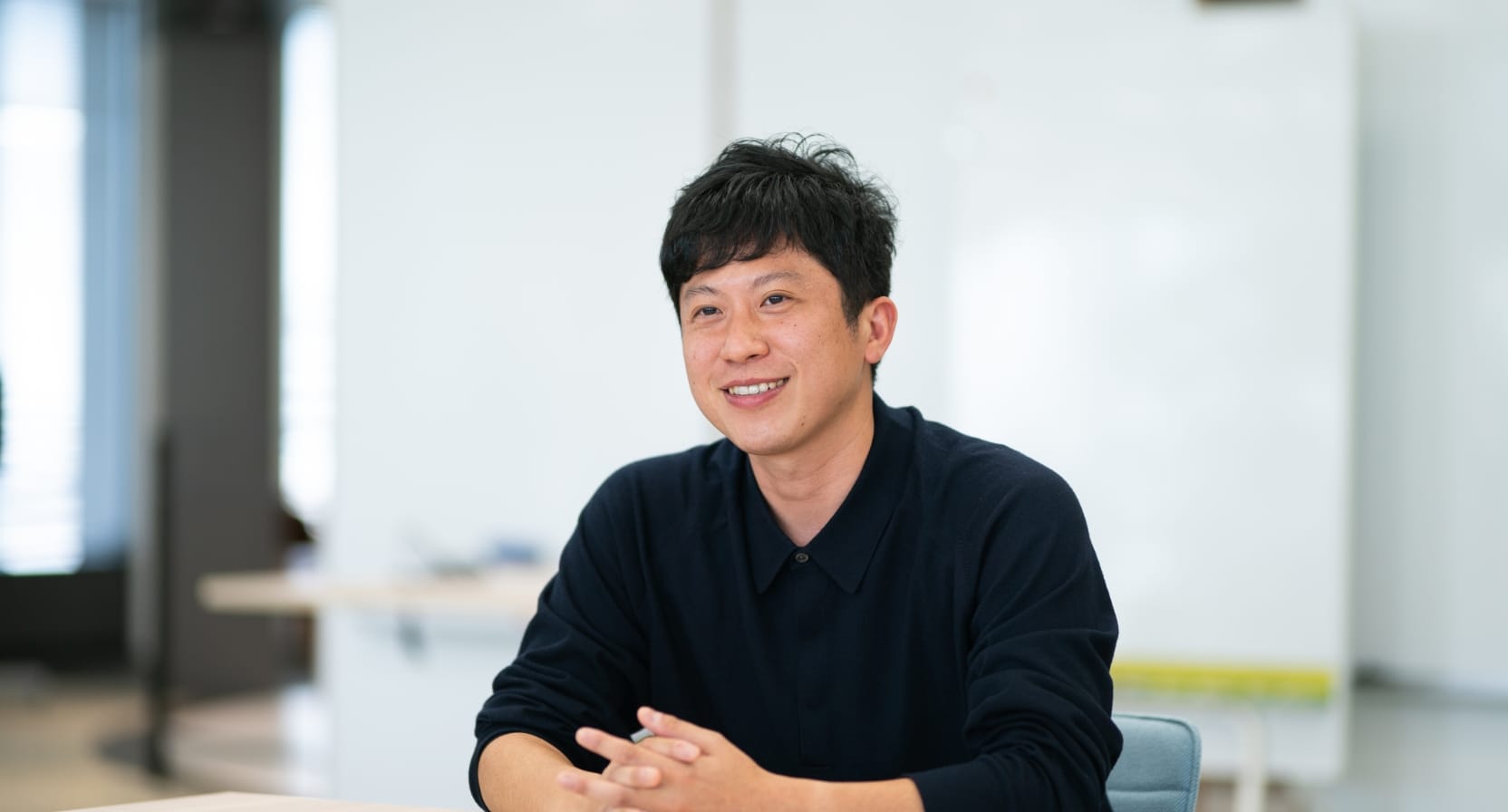
Sugano: For example, if a smartphone game becomes a big hit, it can generate a high profit margin of 40 to 45 percent. I think the Business Innovation unit has potential in creating business models where the sales will rapidly grow for a given cost.
Kohno: I completely agree. And I would also like to see more different types of companies from various industries spring out from the Business Innovation unit. YOCABITO is always looking for new services to offer in partnership with logistics companies. If we have a bigger variation of companies in the FUTURE GROUP, the possible combination for new services will be wider and more interesting. This will lead to creating more value-added services and new synergies. It would be interesting to have a system to quickly start up new internal ventures with less effort within the Business Innovation unit.
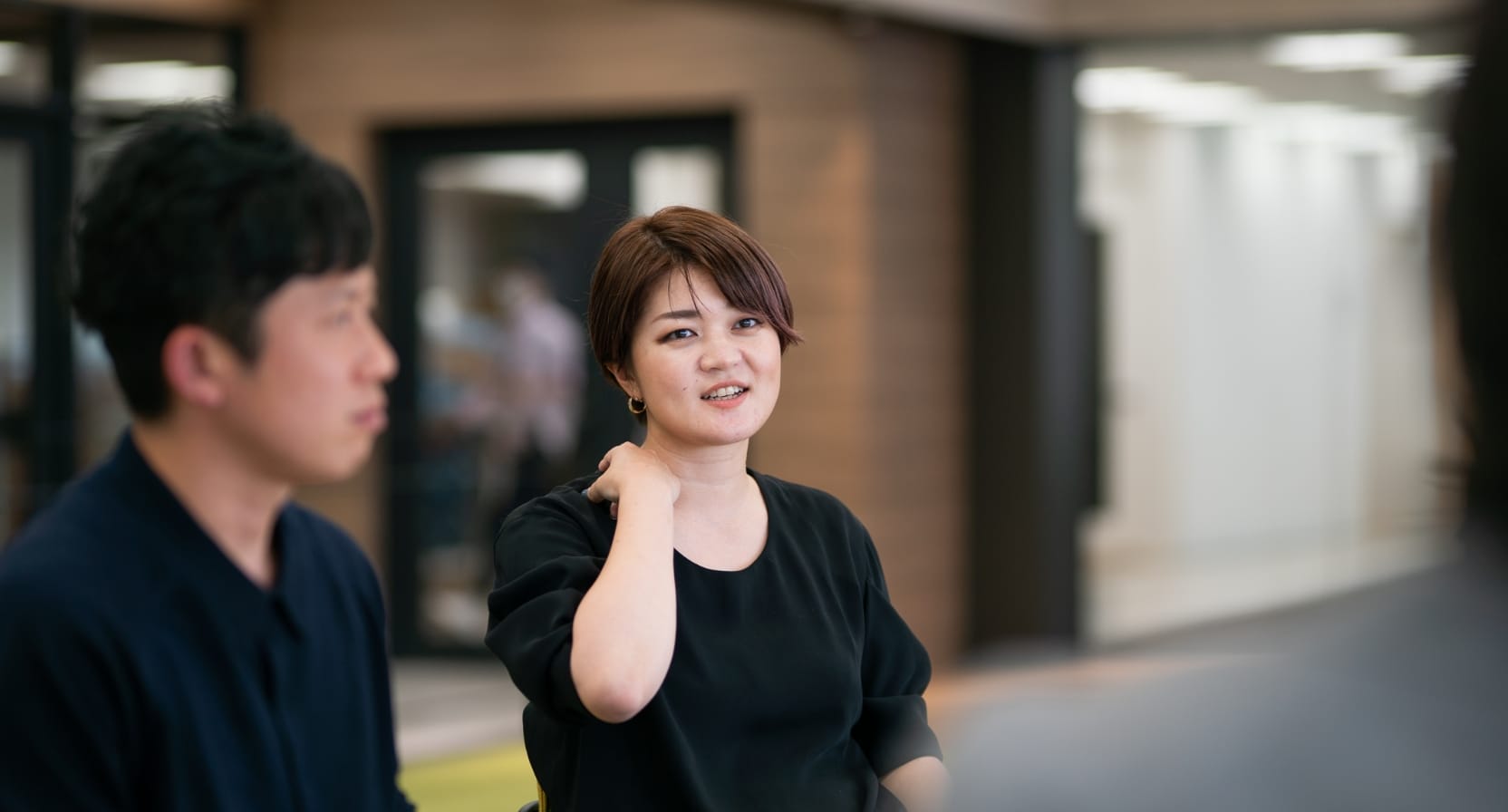
Editorial Team:
I believe that the FUTURE GROUP will be able to diversify its business even further, if each operating
business within the GROUP will aim to become a driving force for non-linear growth. The GROUP will
then become an incubation with a diverse portfolio of companies.
Thank you for joining the discussion. It has been a great time, featuring FUTURE GROUP’s desire to
“lead the path to change society while we also transform”.
The “Two-Way Strategy” can bring non-linear growth opportunities for the FUTURE GROUP.
Back to Top
